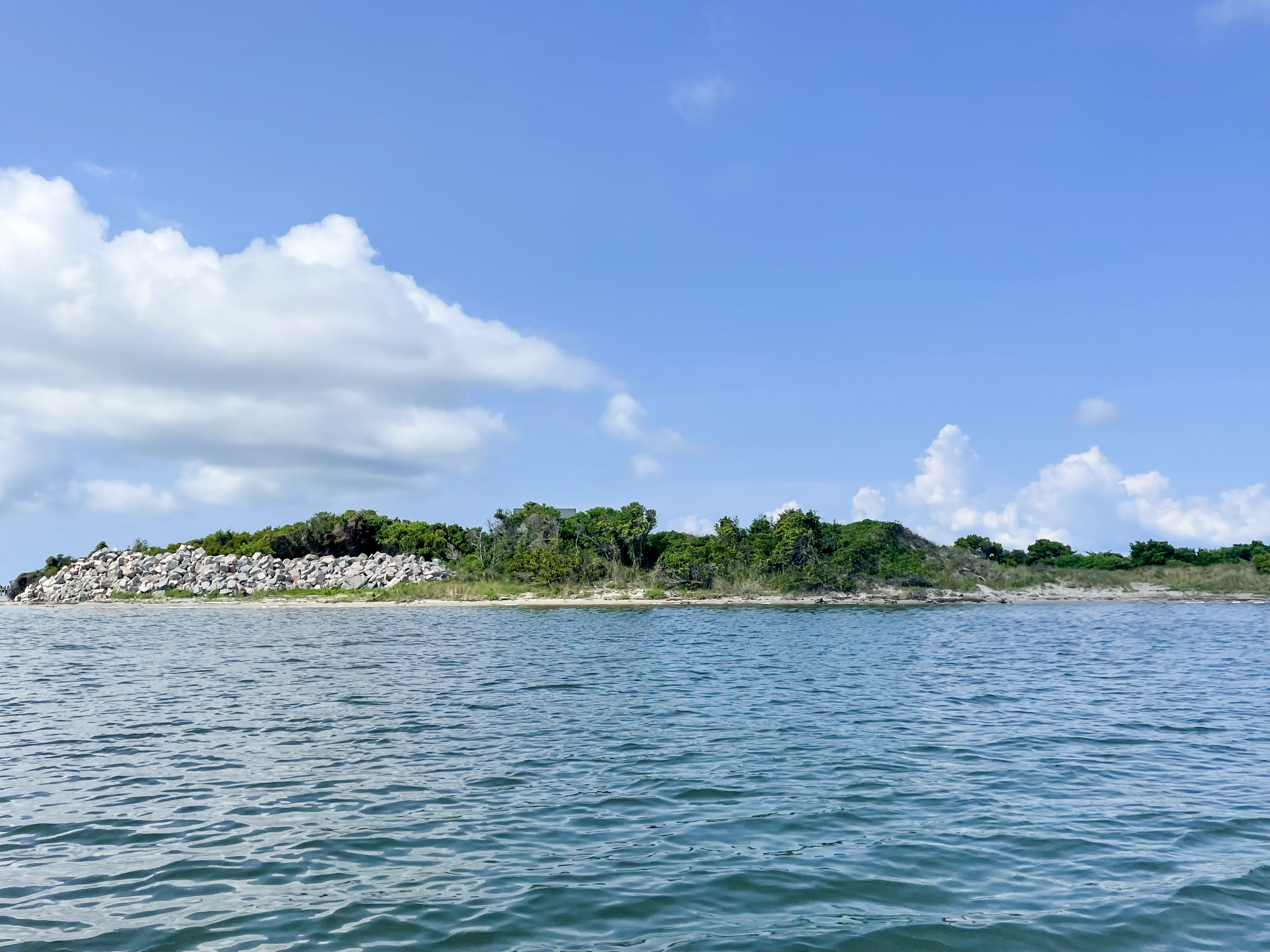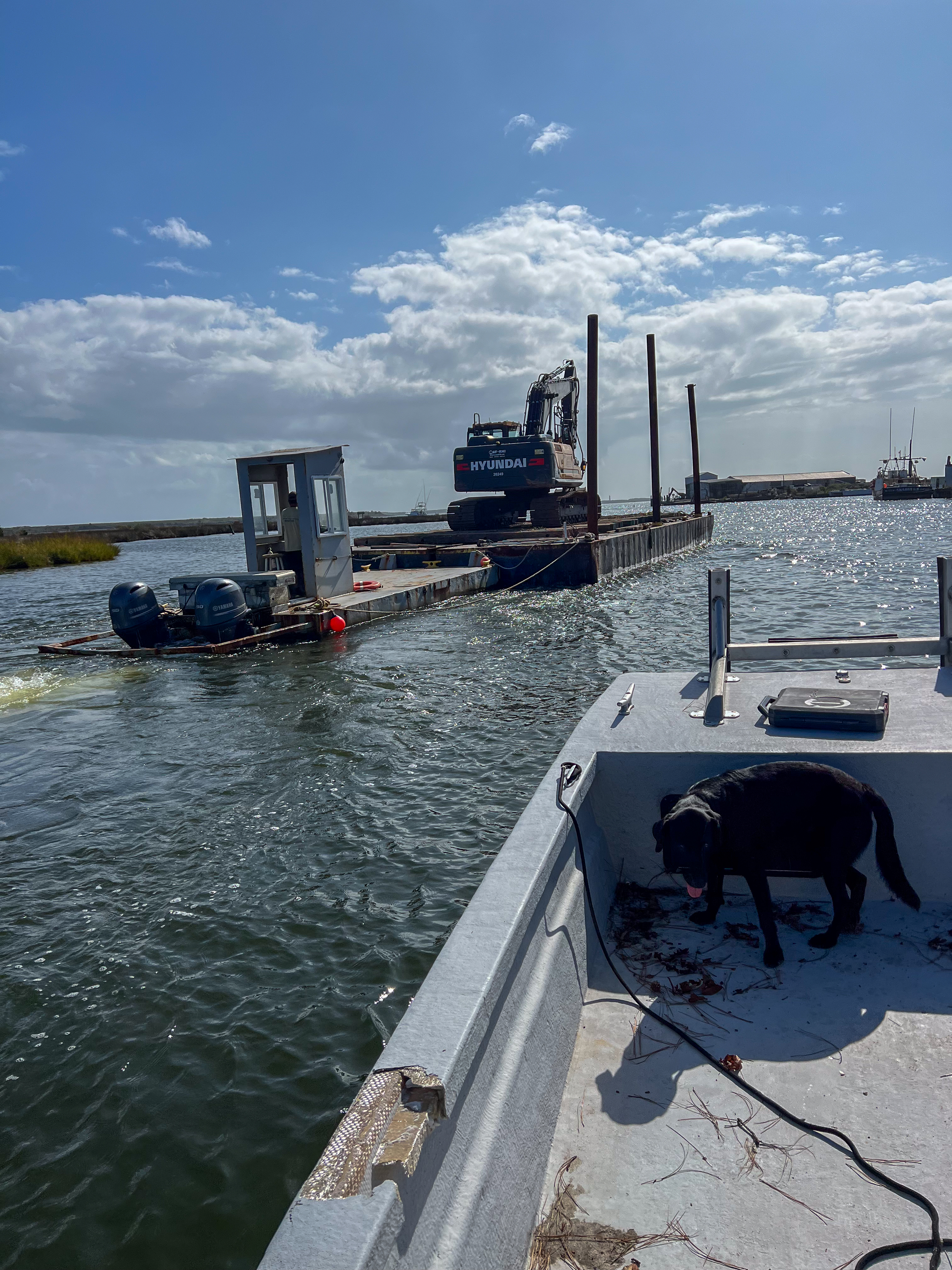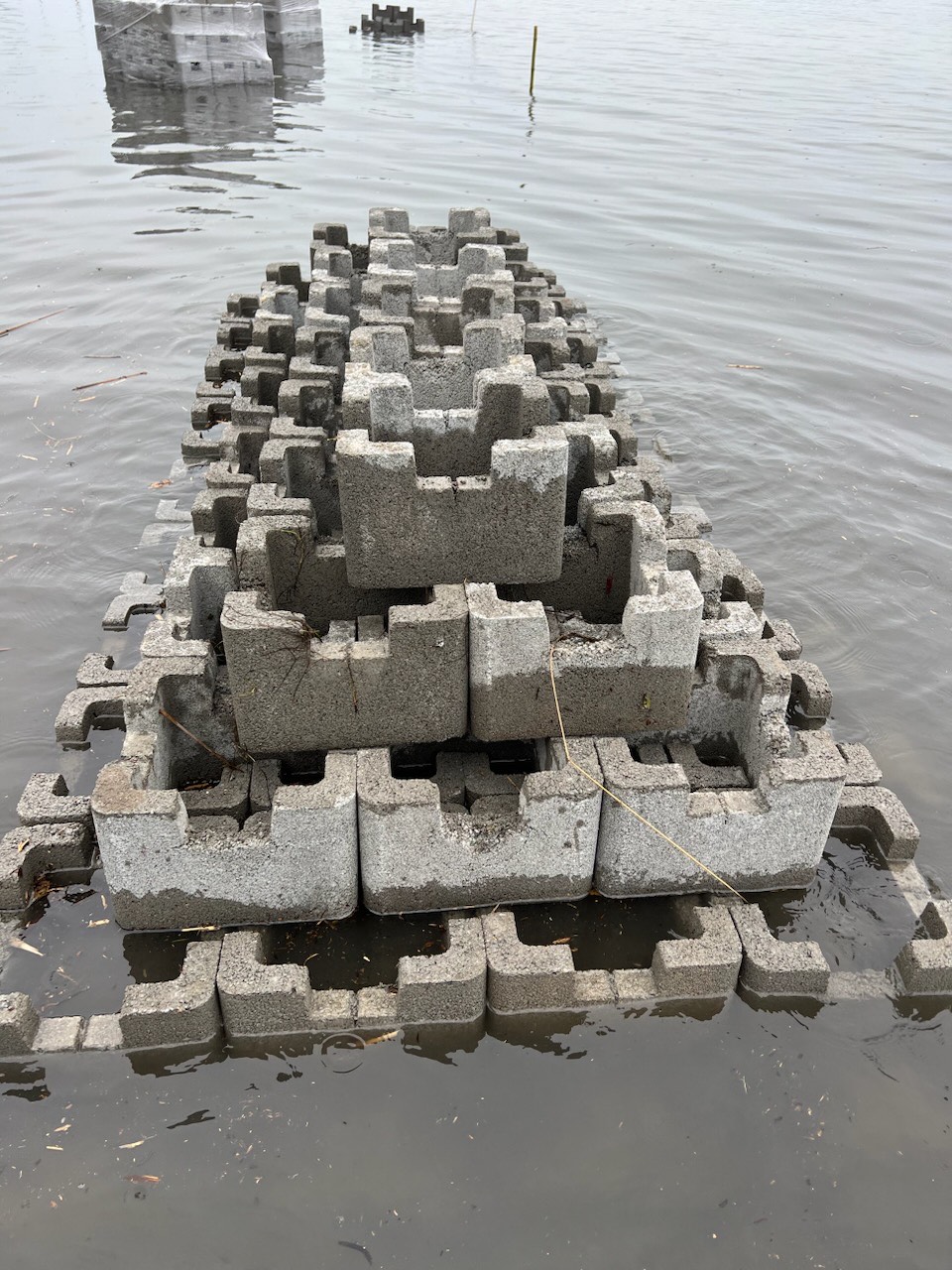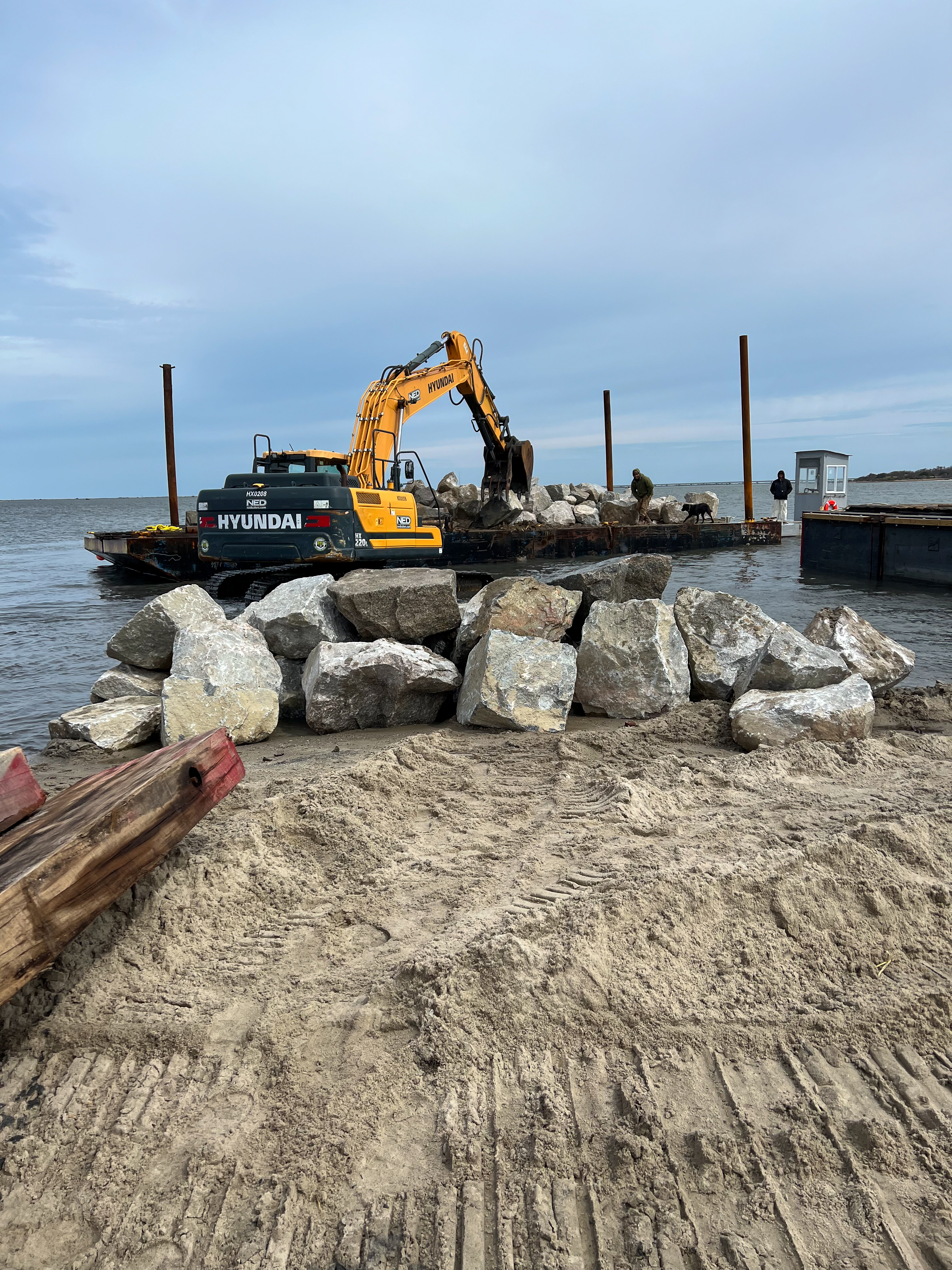
Black Duck Island is a remote 68-acre dredge spoil island near Oregon Inlet. It is called “Island L” by the state of North Carolina, but three of the four current property owners came together and decided to call it Black Duck Island due to the small group of Black Ducks that usually winter on its northwest corner. Half of the island is privately owned and used for faith-based youth hunting and fishing trips led by Cross Trail Outfitters (CTO). The other half is owned by the North Carolina Wildlife Resources Commission and managed as a bird sanctuary.
Over the last eight to ten years, weather and boat traffic has taken its toll on the island, particularly on its south and east shores. The gently sloped flat sandy beaches covered with native grasses have been replaced with steep cliffs and myrtle bushes falling into the water. The shorebird nesting habitat square footage has decreased drastically in the last two years. The loss of the gentle slope has caused accelerated erosion and loss of native salt marsh and shallow water pools.
The Project
The Island’s owners have teamed up with the Federation and other partners to help slow the erosion of the Island and restore the habitat that has been lost. The plan was to bring in granite stone to create a living shoreline sill around the most severely affected areas of the Island to reduce wave impacts. The sill has permit-required breaks every one hundred feet to allow fish passage and water circulation, backed by a secondary short sill landward or shoreward of the breaks. Approximately 2,600 ft. of granite living shoreline was constructed.
Oyster castles were also installed along this section to provide additional oyster habitat. The area landward of the sill will be planted with marsh grasses to ensure the stabilization of sediment accumulation and create habitat for many species. The living shoreline was chosen as the best method to accomplish both goals. Construction of the granite offshore sill was completed in August 2024. Planting will occur in spring 2025.
The living shoreline was designed by Albemarle & Associates, Ltd. and is being constructed by Coastal Wildlife Consultants. The marsh grasses will be planted by Native Shorelines and the youth participating in the CTO trips. The project is supported by the North Carolina General Assembly through an appropriation administered by the North Carolina Land and Water Fund.



